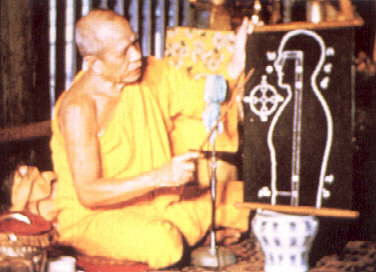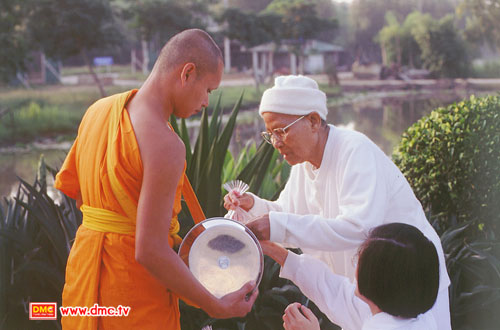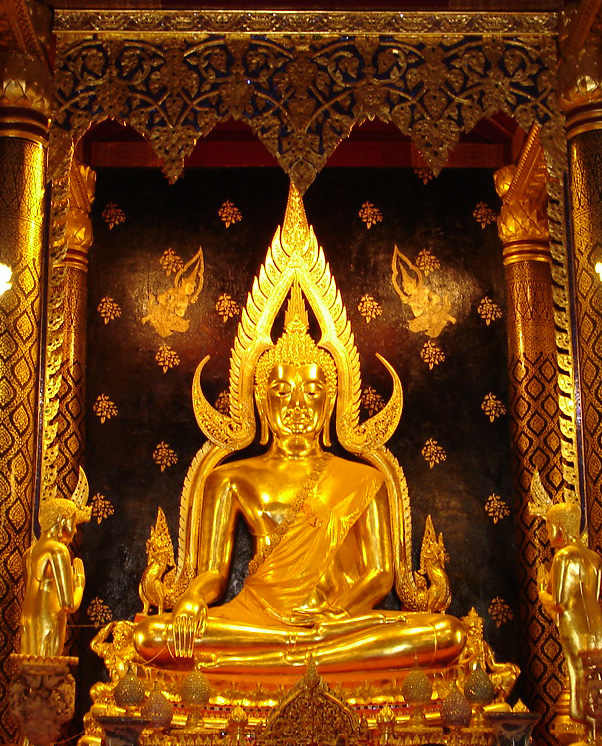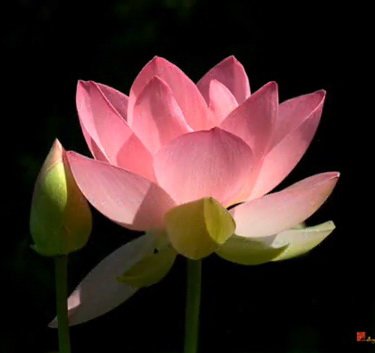Blessing Five:
Having done good deeds in one’s past
Having done good deeds in one’s past
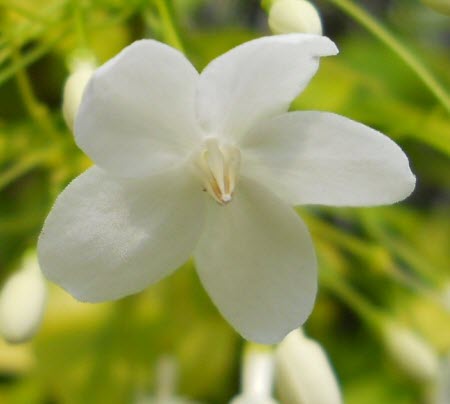
F. ILLUSTRATIVE EXAMPLES
F1. Metaphor: Merit in the Past - Pedigree
The nature of the differences is not the same as the pot-bound bonsai of the previous Blessing. It is not caused by the environment— the difference lies within the person himself — it is a personal attribute which differs in strength from one person to another. Compare a wild strawberry with a domestic breed of strawberry. You can water and fertilize a wild strawberry all you like, but in the end it will only produce a lot of leaves and a few tiny bitter fruits. By contrast, a domestic strain, even if neglected will produce numerous and succulent fruits. The difference is factor which belongs to the plant itself. With plants it is the pedigree, but with people it is the residue of the behaviours they have built up for themselves in the past — not a reputation because that needs a third party to remember it — it is something they build up inside them whether they have witnesses for their behaviour or not.
F2. Metaphor: Merit - Food for the Mind
All dynamic things in the world have fuel on which they feed. Fire burns on brushwood. A tree needs food, but the food that nourishes it is sucked up through the roots. The body burns on physical food. To get the food we need for our body we must find ourselves a job or a career. A light bulb burns on electric current. Sometimes the energy is stored up in the object itself at a previous time (like the bulb of a daffodil or a car battery), sometimes the energy is used as it is obtained. All of these things must be provided with the fuel they need or else one day if the energy they have stored is exhausted, they will become useless or even die.
All of these objects have their own food or fuel to nourish them, but as meditators, the object we are most interested in is the mind. The mind too, must have a food which can fuel its efficient activity, but what could possibly function as a sort of energy which the mind could store or use?
Indeed, the personal residue we are talking about has the special quality of being like food which nourishes the mind — so that the mind can, to its full potential attract good opportunities and things on all four levels of success mentioned above. If mind is well fed it has repercussions for all the other levels too — sooner or later.
F3. Ex. Siri Jātaka(J.284)
The bodhisattva was once an ascetic and had an elephant trainer as a patron. A stick-gatherer, sleeping at night in the hermitage, heard two roosting cocks abusing each other. In the course of the quarrel, one cock boasted that whoever ate his flesh would be king, his skin commander in chief or chief queen and his bones, royal treasurer or king’s chaplain. The man killed the cock and his wife cooked it, then taking it with them, they went to the river to bathe. They left the meat and rice on the bank, but as they bathed, the pot holding the food was blown into the river. It floated downstream where it was picked up by the elephant-trainer. The bodhisattva saw everything with his divine-eye and visited the trainer at meal-time. There he was offered the meat and divided it, giving the flesh to the trainer, the skin to his wife and keeping the bones to himself. Three days later, the city was beseiged by enemies. The king asked the trainer to don royal robes and mount the elephant, while he himself fought in the ranks. There the king was killed by an arrow and the trainer, having won the battle, was made king, his wife being queen and the ascetic his chaplain. The story was told in reference to a brahmin who tried to steal Anāthapiṇḍika’s good fortune [siri]. He perceived that the good fortune was embodied in a white cock for which he begged. Anāthapiṇḍika gave it to him, but the good fortune left the cock and settled in a jewel. He asked for that also, but the good fortune went into a club. The club was also asked for, and Anāthapiṇḍika giving it, asked the brahmin to take it and be gone. However, the good fortune now settled on Anāthapiṇḍika’s wife. The brahmin thereby admitted defeat and confessed his intentions to Anāthapiṇḍika who told the story to the Buddha.


